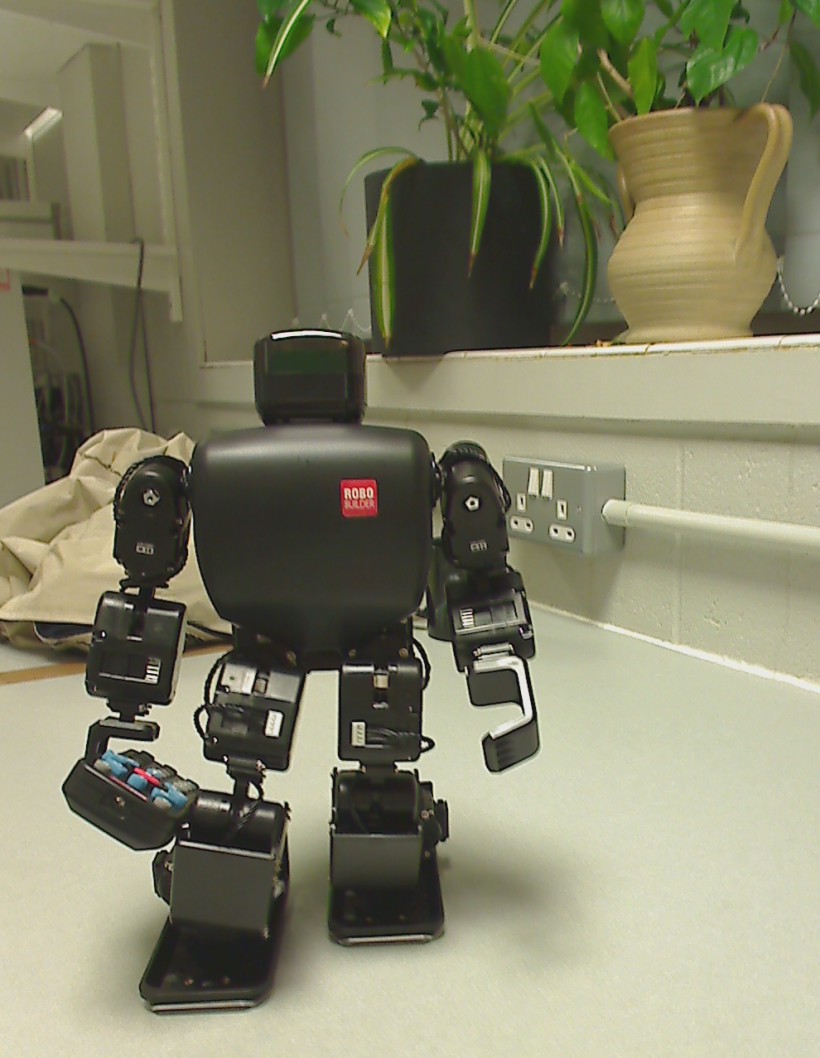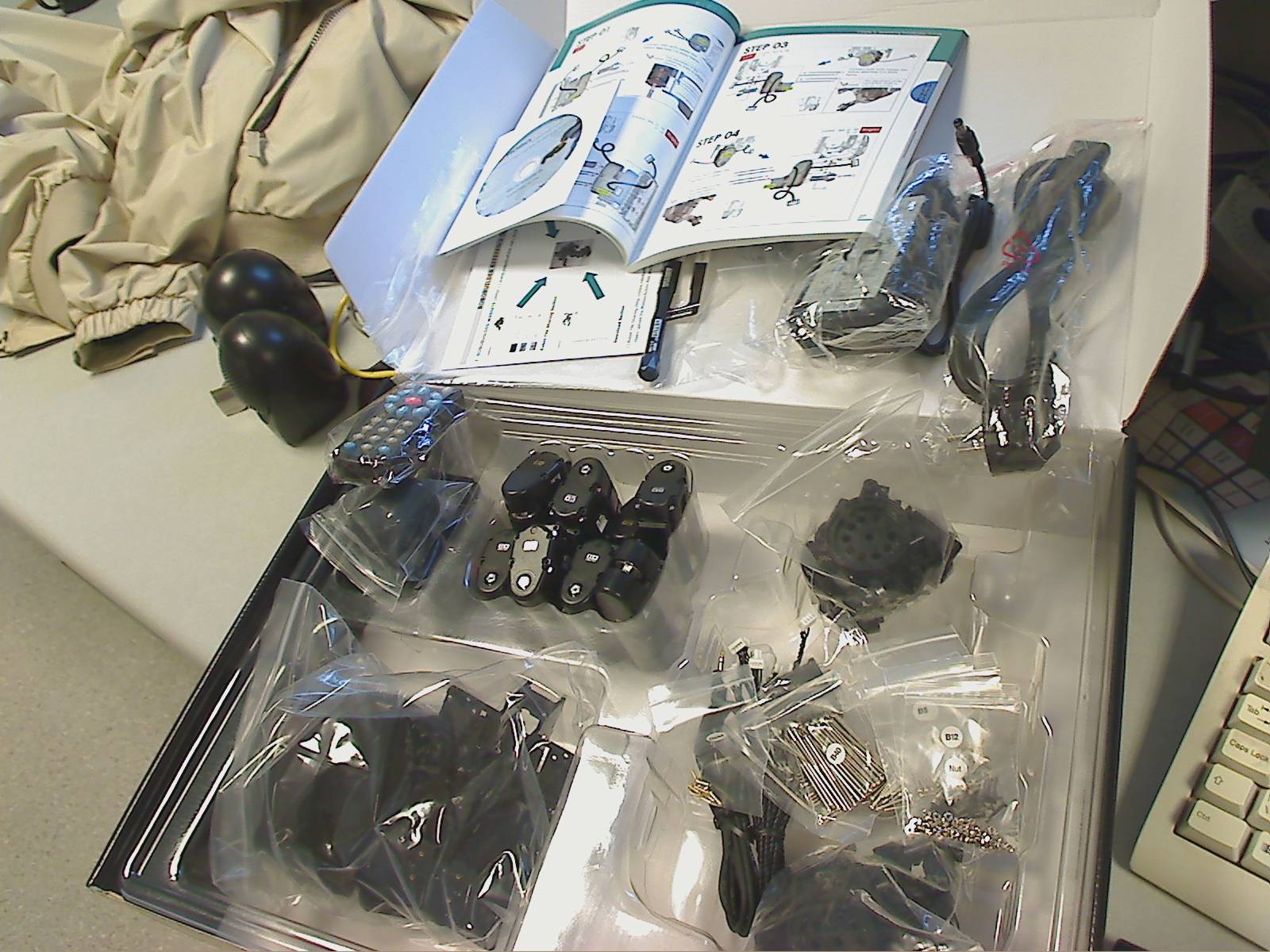Robobuilder
(Difference between revisions)
m (→Using the RBC controller) |
m (→Using the RBC controller) |
||
| Line 9: | Line 9: | ||
=Ruby Examples= | =Ruby Examples= | ||
==Using the RBC controller== | ==Using the RBC controller== | ||
| − | [[Image:New.gif]] You can download the Ruby-extension for controlling the Robobuilder using a GNU+Linux PC here: [http://vision.eng.shu.ac.uk/jan/robobuilder-0.2.tar.bz2 robobuilder-0.2.tar.bz2] | + | [[Image:New.gif]] You can download the Ruby-extension for controlling the Robobuilder using a GNU+Linux PC here: |
| + | |||
| + | '''[http://vision.eng.shu.ac.uk/jan/robobuilder-0.2.tar.bz2 robobuilder-0.2.tar.bz2]''' | ||
Here is a small example program which makes the robot get up if it's lying on its back or its front. | Here is a small example program which makes the robot get up if it's lying on its back or its front. | ||
Revision as of 15:43, 2 October 2009
Ruby Examples
Using the RBC controller
![]() You can download the Ruby-extension for controlling the Robobuilder using a GNU+Linux PC here:
You can download the Ruby-extension for controlling the Robobuilder using a GNU+Linux PC here:
Here is a small example program which makes the robot get up if it's lying on its back or its front.
#!/usr/bin/env ruby
require 'robobuilder'
require 'matrix'
class Vector
def norm
Math.sqrt inner_product( self )
end
end
robot = Robobuilder.new '/dev/ttyUSB0'
puts "Robobuilder"
puts "Serial number: #{robot.serial_number}"
acceleration = Vector[ *robot.accelerometer ]
if acceleration.inner_product( Vector[ 0, 0, 1 ] ) > acceleration.norm / 2
robot.basic
robot.a
elsif acceleration.inner_product( Vector[ 0, 0, 1 ] ) < -acceleration.norm / 2
robot.basic
robot.b
end
acceleration = Vector[ *robot.accelerometer ]
if acceleration.inner_product( Vector[ 0, 1, 0 ] ) > acceleration.norm / 2
robot.run 1
end
robot.close
External Links
- Robobuilder Ltd. (Korean manufacturer)
- Robosavvy (UK distributor)

